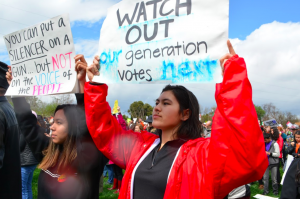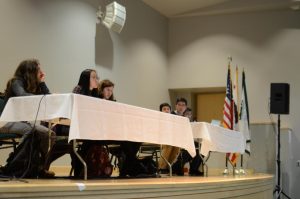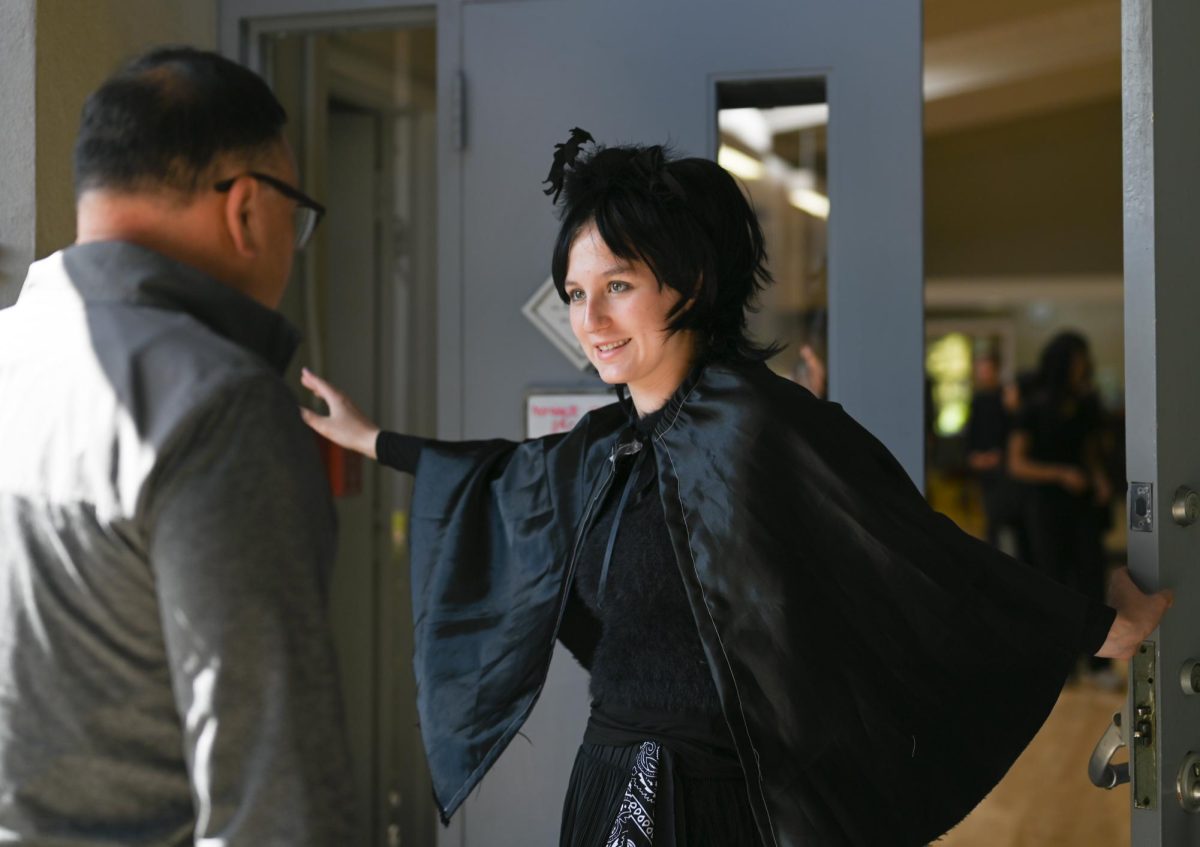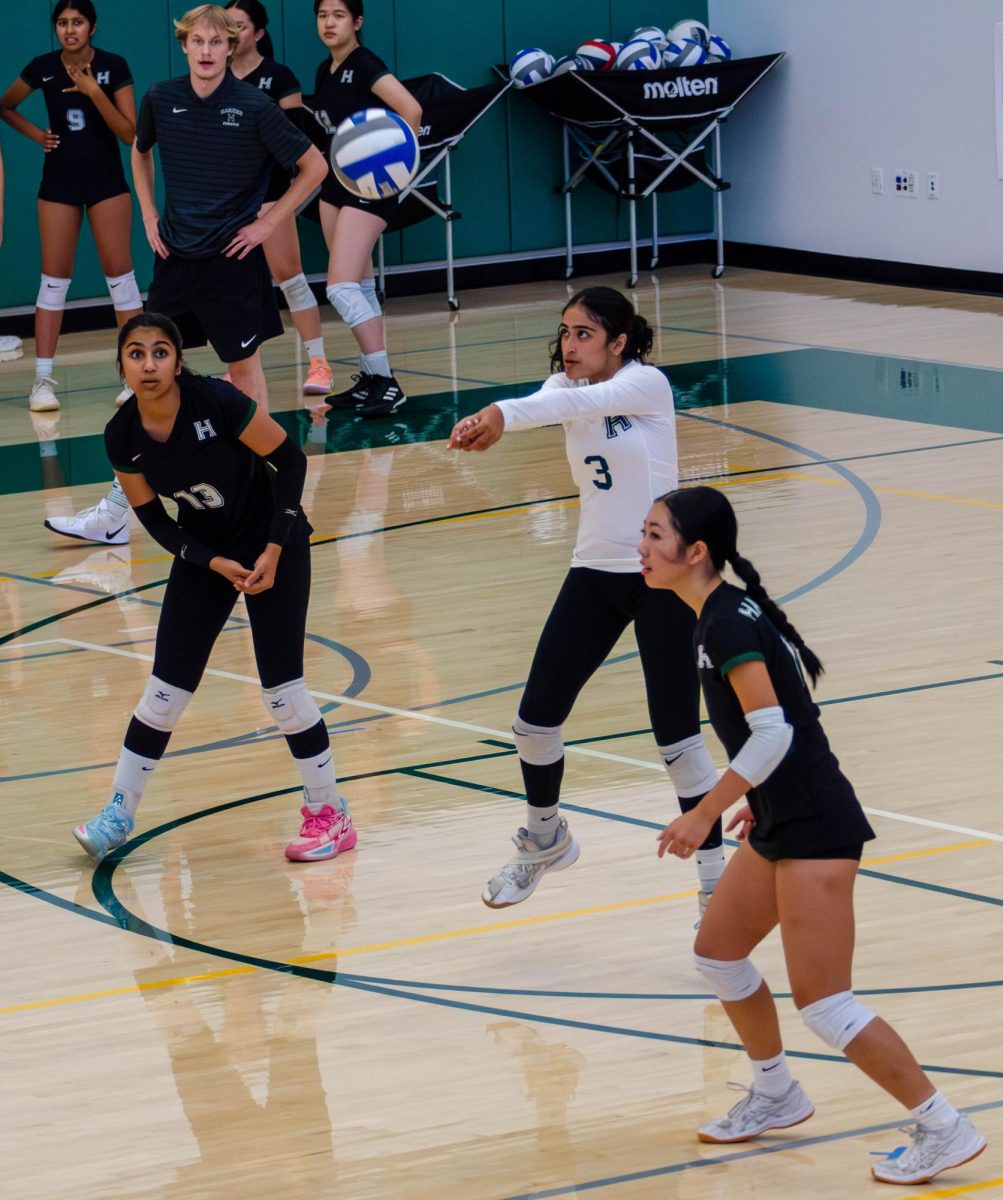Shots Fired: America tackles its growing gun problem
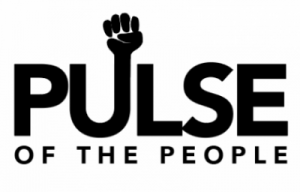
December 8, 2018
Moorpark College student Noel Sparks was spending her evening at Borderline Bar & Grill’s college country and line dancing night when a man dressed in dark clothes opened fire on the crowd with a pistol equipped with an extended magazine, according to witness accounts.
Sparks, along with 11 others, were shot and killed at the bar in Thousand Oaks, CA, on Wednesday, Nov. 7. Less than two weeks prior to the shooting, 11 people were killed and six were injured at a mass shooting at the Tree of Life synagogue in Pittsburgh, PA.
“I am sad, and I am angry that [shootings] keep happening. With the hate crime at the synagogue, the media just said he was mentally ill,” said senior Tamar Sasson, who recently wrote a poem about gun violence in America for Quadchella. “Maybe he was, but he was also outwardly anti-Semitic, and it was very obvious that what he was doing was probably out of anger more than anything, and that is a hate crime, it is a terror attack.”
The two shootings represent mere specks in what is a rapidly growing problem in the United States: gun violence. In a country with few restrictions on gun ownership, Americans suffered 30 mass shootings in the month of October, according to statistics from the Gun Violence Archive.
Although Congress has enacted little gun legislation to confront this issue, activists across the country have protested a lack of “common sense” gun laws, which mainly revolve around restricting guns to the mentally ill and previously incarcerated individuals who have a history of violence. These protests culminated in the March For Our Lives Movement, organized by Parkland survivors, where thousands of protesters took to the streets last spring. The hashtags #NeverAgain and #EnoughIsEnough were also used on social media sites thousands of times following the shooting.
In a phone interview with Melissa Falkowski, the journalism adviser at Marjory Stoneman Douglas High School, she discussed the continued efforts of the students to combat gun violence in schools.
“Obviously, change is a goal that many students who are still at our school have. The midterms had both successes and failures. I think a lot of us are focused on all the firsts that were achieved,” she said. “The House is going to be the most diverse it has ever been. Twenty-seven NRA backed candidates were defeated. I read last week that the NRA is letting staff go because they are losing revenue as they lose more and more members. That’s pretty significant.”
To mark the one-month anniversary of the Parkland shooting, thousands of students from high schools participated in a nationwide walkout. Students at Columbine High School, which experienced a mass shooting in 1999, organized a “Vote for Our Lives” rally the day before to encourage eligible youth to register to vote.
On Nov. 21, members of the faculty at MSD staged a walkout to protest the reassignment of four teachers, with was done in response to the February shooting.
“The school district came in last Monday and reassigned three of our assistant principals and our security specialist while they investigate them for potential wrongdoing leading up to 2/14 and on 2/14,” said Falkowski. “Our school community is still reeling from that and I think that at this particular moment, we are focused on making it day to day in this tumultuous time.”
Subsequently, right-wing political figures such as President Trump supported the idea of arming teachers to hinder school shooters. Although this proposal faced significant backlash from politicians across the political spectrum, his response was repeated after the more recent Pittsburgh synagogue shooting in which he suggested that an armed guard may have been able to apprehend the shooter.
“I’ve been back [to Israel] many, many times, and only once have I ever encountered something even closely related to war,” said Tamar, who was born in Israel. “That’s a country where there’s so much war going on, but then here, where there’s no war on the homefront, I feel more unsafe here just because you see all these shootings happen at schools and synagogues and churches and restaurants, and it keeps getting closer and closer to home.”

This graphic depicts the weapon, date and number of dead for recent mass shootings.
The Impact of the Midterms
However, following the results of the recent midterm elections, Democratic House control may foreshadow significant political action backing up gun control rhetoric that would not have been possible in earlier years.
Current House Minority Leader Nancy Pelosi pledged to enact bipartisan gun legislation alongside other Democrats in a statement following the shooting, writing that the American people need “common sense solutions to prevent gun-violence across the country.”
Despite federal gun legislation rarely passing from Congress, state propositions during the midterms, in many ways, took gun control into their own hands. Washington, a historically liberal state, approved a ballot measure which raises the legal age to buy rifles to 21 and creates an enhanced background check as well as a new storage law that mandates gun owners to safely secure their firearms.
However, according to the Department of Justice, more than 70 percent of homicides have involved handguns, not a rifle, which indicates the limitation of raising the legal age to purchase rifles. Even so, semi-automatic rifles have been used in some of the country’s deadliest shootings, including the Pulse Nightclub, San Bernardino and Las Vegas. The popularity of these rifles lessened after the 10-year assault weapons ban, signed into law by former president Bill Clinton, expired in 2004.
After the midterms, Colorado representative Jason Crow defeated incumbent Republican Mike Coffman, a politician who had previously received immense donations from the NRA. Crow pledged to work on banning assault weapons and increasing background checks in his campaign.
Another win for gun legislation advocates was Jennifer Wexton’s defeat of Republican incumbent Barbara Comstock of Virginia. The NRA rating, which ranks politicians based on their support for gun ownership, awarded Comstock with an “A” rating. In contrast, Wexton campaigned on an assault weapons ban and wanted the government to view gun violence as a public health issue. In response, #NeverAgain activist and Parkland survivor David Hogg tweeted, “Bye @BarbaraComstock :),” on Nov. 7.
Although the House experienced victories for gun reform, the Senate now has newly elected legislators who have openly opposed gun reform. Republican senator Mike Braun of Indiana is an “avid hunter, NRA member, and 100% pro-2nd Amendment,” according to his campaign website. Similarly, the NRA has endorsed Marsha Blackburn of Tennessee on her conservative gun control agenda.
This piece was originally published in the pages of The Winged Post on December 6, 2018.


















![“[Building nerf blasters] became this outlet of creativity for me that hasn't been matched by anything else. The process [of] making a build complete to your desire is such a painstakingly difficult process, but I've had to learn from [the skills needed from] soldering to proper painting. There's so many different options for everything, if you think about it, it exists. The best part is [that] if it doesn't exist, you can build it yourself," Ishaan Parate said.](https://harkeraquila.com/wp-content/uploads/2022/08/DSC_8149-900x604.jpg)




![“When I came into high school, I was ready to be a follower. But DECA was a game changer for me. It helped me overcome my fear of public speaking, and it's played such a major role in who I've become today. To be able to successfully lead a chapter of 150 students, an officer team and be one of the upperclassmen I once really admired is something I'm [really] proud of,” Anvitha Tummala ('21) said.](https://harkeraquila.com/wp-content/uploads/2021/07/Screen-Shot-2021-07-25-at-9.50.05-AM-900x594.png)







![“I think getting up in the morning and having a sense of purpose [is exciting]. I think without a certain amount of drive, life is kind of obsolete and mundane, and I think having that every single day is what makes each day unique and kind of makes life exciting,” Neymika Jain (12) said.](https://harkeraquila.com/wp-content/uploads/2017/06/Screen-Shot-2017-06-03-at-4.54.16-PM.png)








![“My slogan is ‘slow feet, don’t eat, and I’m hungry.’ You need to run fast to get where you are–you aren't going to get those championships if you aren't fast,” Angel Cervantes (12) said. “I want to do well in school on my tests and in track and win championships for my team. I live by that, [and] I can do that anywhere: in the classroom or on the field.”](https://harkeraquila.com/wp-content/uploads/2018/06/DSC5146-900x601.jpg)
![“[Volleyball has] taught me how to fall correctly, and another thing it taught is that you don’t have to be the best at something to be good at it. If you just hit the ball in a smart way, then it still scores points and you’re good at it. You could be a background player and still make a much bigger impact on the team than you would think,” Anya Gert (’20) said.](https://harkeraquila.com/wp-content/uploads/2020/06/AnnaGert_JinTuan_HoHPhotoEdited-600x900.jpeg)

![“I'm not nearly there yet, but [my confidence has] definitely been getting better since I was pretty shy and timid coming into Harker my freshman year. I know that there's a lot of people that are really confident in what they do, and I really admire them. Everyone's so driven and that has really pushed me to kind of try to find my own place in high school and be more confident,” Alyssa Huang (’20) said.](https://harkeraquila.com/wp-content/uploads/2020/06/AlyssaHuang_EmilyChen_HoHPhoto-900x749.jpeg)



